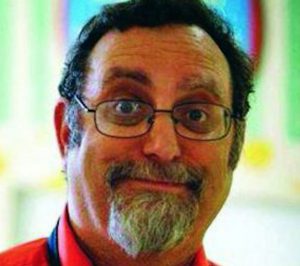Leavitt: Americans may have to take a leap of faith
October 23, 2019Toward the end of the 1990 movie “Joe Versus the Volcano,” the lead actors are pondering jumping into an erupting volcano because they consider it the only right and noble thing to do. It’s then that Meg Ryan delivers my favorite movie lines of all time.
“Joe, nobody knows anything,” she tells Tom Hanks’ character. “We’ll take this leap and we’ll see. We’ll jump and we’ll see. That’s life.”
I love those lines because they express hope against all odds. Writer-director John Patrick Shanley recognized that no matter how much we think we know, the future is a mystery.
We don’t know when we’ll die, or what death is like. We don’t know, either, how the most ridiculous risks might pan out: Will they leave us ruined or dead, alive or exalted, or something in between? Or in a totally unexpected condition?
So sometimes, we might as well trust our future to the universe, and try to do the difficult and noble things, because everything might turn out fine. Even if it all turns out terribly, at least we tried to do some of the honorable things in life.
I’ve been hearing for over a year that some people want to do a very noble thing, but they despair that it will turn out very badly, so they are afraid. But they are good people, so they know that eventually, they will have to do it.
What they yearn to do is forgive.
Many Americans have been on opposite sides for a while, and most of us know where our friends, loved ones and even casual acquaintances stand, because it’s very hard to keep such things secret now. We didn’t want to know, but we do. And eventually, we will have to come to grips with that. We will have to treat everyone like the valued participants in our lives that they have always been, no matter what they may think about some things that are important to us.
At some point, we must admit that people don’t easily change, but we can change our own attitude toward them.
I think some of us are waiting for some kind of miracle to bring us together again. But even if it’s to be a miracle, someone must take the first step.
Even the most famous miracle of legend, the parting of the Red Sea, needed one person to set it off. It wasn’t Moses, by the way. It appears that his followers had depended on him to come through, but he didn’t.
The bibles say that Moses was entrusted to raise his staff and to lead his people into the water. But he did not lead.
That role was said to have been left to a little-remembered man named Nahshon. Upon being told that the waters would part, the young tribal chief believed it without question, and walked into the Red Sea. As the waves washed over him, everybody else stayed on shore.
He kept on walking, unfazed, as the water neared the top of his head. It was only then that it began to recede, and the people of Israel could follow.
Nahshon, like Moses, did not himself enter the promised land. His part in the Red Sea saga never got into bibles, and has been relegated to theological footnotes.
According to biblical lore, however, he was both a descendant of Judah (whose name is the source of the word “Jew”) and an ancestor of Jesus. His name can be found in the New Testament in Jesus’ genealogy, according to both Matthew and Luke.
He is not mentioned in the Hebrews chapter, but the force that moved him into the water is described there: “Now faith is the substance of things hoped for, the evidence of things not seen.”
Whether we’re fighting for our lives or relearning how to live in a civil society, we need faith that setting aside our differences and joining forces with our brothers and sisters will lead us to success.
Whatever happens, it will be because we did it. We won’t repair our relationships by accident.
We can’t depend on divine intervention to solve our problem. We got ourselves into this, and we’ll have to get ourselves out.
President John F. Kennedy may have told us what we need to know about that in 1961.
“With a good conscience our only sure reward, with history the final judge of our deeds, let us go forth to lead the land we love, asking His blessing and His help, but knowing that here on earth God’s work must truly be our own.”
We can’t call an Uber to take us to the promised land.








